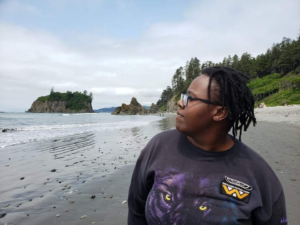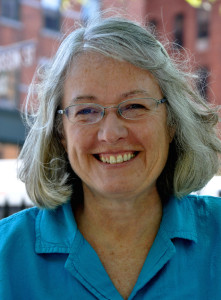There’s this common misconception that the world of editing (in the sense of submitting your story to a magazine or contest) is an absolute puzzle constantly being shifted around by angry and jaded editors. In classes, writing groups, and even among non-writers, I hear it repeated that you have to have this unknowable combination of luck and talent to land a spot in a magazine, and it isn’t worth trying or learning. You got it or you don’t.
But that type of thinking leaves most people without it.
I want to say that in my years as a reader, judge, and developmental editor none of that is true. Especially about editors. We’re not shadowed goblins lying in wait to crush every writers’ dream. The reason we got into this line of work is because we want to hear a good story, a new story. We want to be entertained.
But unfortunately, most of the time, we are not. We are left wondering where’s the story.
And after a few years, I realized that most stories don’t make it because of the same reasons. Time and time again, I open a submission (always reading without knowing the info of the author) and come across the same mistakes or faults in stories that keep a cool or fun idea from making it from a submission to an acceptance. Dear writer, I’m going to tell you these faults so that you can identify them in your own stories and make it out of the slush pile.
Because I do really want to see your stories out there. Even if I never read them, someone will, and they will love them.
One of the common issues I come across are dark openings. A dark opening is when a writer aims to be mysterious but doesn’t give the reader anything to hold on to. Often, the story opens with two characters exchanging a few lines of dialogue while doing some mundane task that is an overarching metaphor for the story. That in itself isn’t bad and can be found in a lot of great stories, but where the stories fail is in how they do this.
In dark openings, characters, along with their dialogue, are usually nondescript to the point where you can’t really tell who is saying what because everyone sounds the same, and they aren’t really having a conversation but are merely stating the story in a heavy-handed way. The correct way in doing these mysterious dialogue driven openings is to use metaphor less like metaphor and more like subtext so that the point comes in without feeling like it’s being fed to the reader. And, of course, all dialogue should be distinctive to the characters, but this is even more so important in an opening.
Not only does it show the reader the characters, but it shows them that you’re an author who knows your story and characters. It builds that very necessary and crucial bridge of trust between the writer and the reader.
Another thing that holds writers back is telling their story to the reader instead of showing their story to the reader. Commonly known as telling vs showing. Based on the stories I’ve read, my theory behind this bit of advice not sinking into writers is that they misunderstand what it means to show and to tell. Writers tend to do a lot of in your face telling masking as showing. For instance, during a fight scene, the reader will get a blow by blow of flailing arms and legs.
But that is not showing.
Showing does more than just show. Showing makes the reader feel. It calls forth the image of the scene or character to the reader’s mind. There are many ways to do this, but the top way is by using descriptive language and sentence structure to control reader emotion and story. Instead of giving a blow by blow of action, give a blow by blow of evocative internal workings. How does your character feel when slicing into their foe or friend or lover? Use the right words in the right order to create magic.
The final issue that many stories have, though there are many more, is that they start too late. For a story of any length, the editor looks for whether or not the writer has introduced world, theme, problem, and character within the first paragraph. But a lot of writers, choose to open their stories with something that they think will grab the attention of the reader or will paint a picture of the setting. But what will tell an editor of place or grab their attention won’t actually cue them in on what is important to this story and to the character.
Openings should introduce world, character, and problem at least on the first page. When it is not introduced, the editor is left wondering where the story is going, instead of wrapped up in its progression.
As you will have noticed, most of these issues happen in a story’s opening. That’s the only space you really have to win a reader or an editor over. And editors can feel or sense whether or not the story they dive into is written by a writer that knows what they are doing or by a writer who is just phoning it in because they don’t think they have to try.
If you take issue with this article and feel as though I am lying to you, then I leave you with this: it is my firm belief that every writer should become a slush reader, so that they may see the wide array of mistakes laden in stories. It will not only help you realize your own faults, but it will also show you that I am right.
 BIO: Aigner Loren Wilson is a SFWA, HWA, and Codex writer whose stories and articles have appeared in Terraform, Rue Morgue, Arsenika, and more. She writes or edits for Strange Horizons, Nightlight: A Horror Podcast, NYC Midnight, and other outlets. To keep up to date on where she is publishing and other news, sign up for her newsletter, follow her on Instagram, or follow her blog.
BIO: Aigner Loren Wilson is a SFWA, HWA, and Codex writer whose stories and articles have appeared in Terraform, Rue Morgue, Arsenika, and more. She writes or edits for Strange Horizons, Nightlight: A Horror Podcast, NYC Midnight, and other outlets. To keep up to date on where she is publishing and other news, sign up for her newsletter, follow her on Instagram, or follow her blog.
If you’re an author or other fantasy and science fiction creative, and want to do a guest blog post, please check out the guest blog post guidelines. Or if you’re looking for community from other F&SF writers, sign up for the Rambo Academy for Wayward Writers Critclub!










